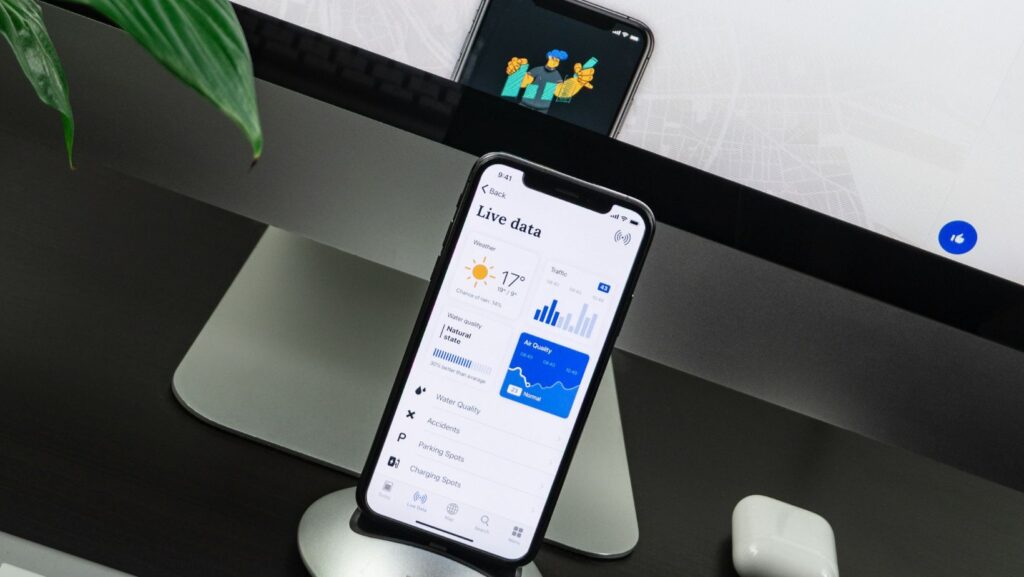Mobile apps are extremely convenient. Thus, patients and healthcare providers rely on them more and more. No wonder it happens that way. Digital products allow us to store and secure a lot more information than we could ever do on paper.
As we dive into this digital space, we need to make online operations safe for both patients and doctors. That’s the exact point where we need to turn to mobile app HIPAA compliance.
This article explores all the aspects behind HIPAA compliance and shares everything you need to know about developing a HIPAA-compliant application.
What Is a HIPAA-Compliant App?
These apps must include several security features:

- Data encryption. This feature is needed to prevent unauthorized access.
- User identification. Each session requires user verification. This security measure helps to prevent information leakage.
- Emergency access. A specific protocol that ensures access during emergencies.
What Apps Are Subject to HIPAA?
HIPAA applies to apps in two main scenarios:
- Covered entities and business associates (healthcare providers and healthcare clearinghouses). An app developed for these entities needs to be HIPAA-compliant.
- Personal Health Record (PHR) devices. These are used to manage patients’ health information. These apps are subject to HIPAA regulations, too. If an app collects personal information (birthdate or diagnosis), it likely qualifies as a PHR device. And therefore, it needs to comply with HIPAA.
Developing a HIPAA-Compliant App
Developing a HIPAA-compliant app involves several critical steps:

| Step | Description |
| Find an expert | Hire a consultant or outsource to an experienced team for consultation and auditing. This is crucial in developing a HIPAA-compliant app, as experts can guide on compliance and data security. |
| Evaluate patient data | Assess the data collected from patients to ensure only necessary information is gathered. Minimizing data collection helps adhere to privacy rules. |
| Limit the use and sharing of PHI | Restrict the use and sharing of PHI to the minimum required. This guarantees that PHI is only used for intended purposes. |
| Agreements with business associates | Establish agreements with business associates (BAs) performing covered functions. These agreements ensure that BAs comply with HIPAA regulations, contributing to overall data security. |
| Limit access | Implement procedures to limit who can access patient information and train staff on data protection. Controlling access is essential for maintaining privacy and data security. |
| Encrypt data | Use multiple levels of encryption for stored data. Encryption is an obstacle to unauthorized access to PHI. |
| Test and maintain security | Regularly test and update app security, consulting experts for static and dynamic testing. Continuous testing and updates ensure that the app remains compliant with HIPAA privacy rules and data security standards. |
This table was created in accordance with the best HIPAA-compliant app development that we employ.
5 HIPAA-Compliant Mobile Applications
Several mobile applications have set the standard for HIPAA compliance:

| Application | Description | Key Features | Use Case |
| Doxy.me | a telemedicine platform offering secure video conferencing | Secure video calls
No downloads required Works on any device |
consultations and virtual visits |
| CharmHealth | an EHR and practice management solution | Electronic Health Records (EHR)
Practice management Medical billing |
patient records management, scheduling, and billing |
| Doximity | a social network for healthcare professionals | Secure Messaging
Video calls Digital faxing |
networking, secure communication, and collaboration |
| TheraNest | a practice management software for mental health professionals | Client Portal
Secure document storage Billing and invoicing |
client records management, scheduling, and billing |
| SimplePractice | practice management software for health and wellness professionals | Telehealth
Secure client portal Insurance billing |
client records management, scheduling, telehealth sessions, and billing |
The Bottom Line
Businesses and startups take a lot of responsibility, as many of them deal with users’ personal data. The stakes get even higher when we consider healthcare apps.
That’s why we encourage our readers to pay greater attention to HIPAA compliance and other data security features. Don’t hesitate to invest in HIPAA compliance. This move safeguards both patient data and positions your app for success as well.
